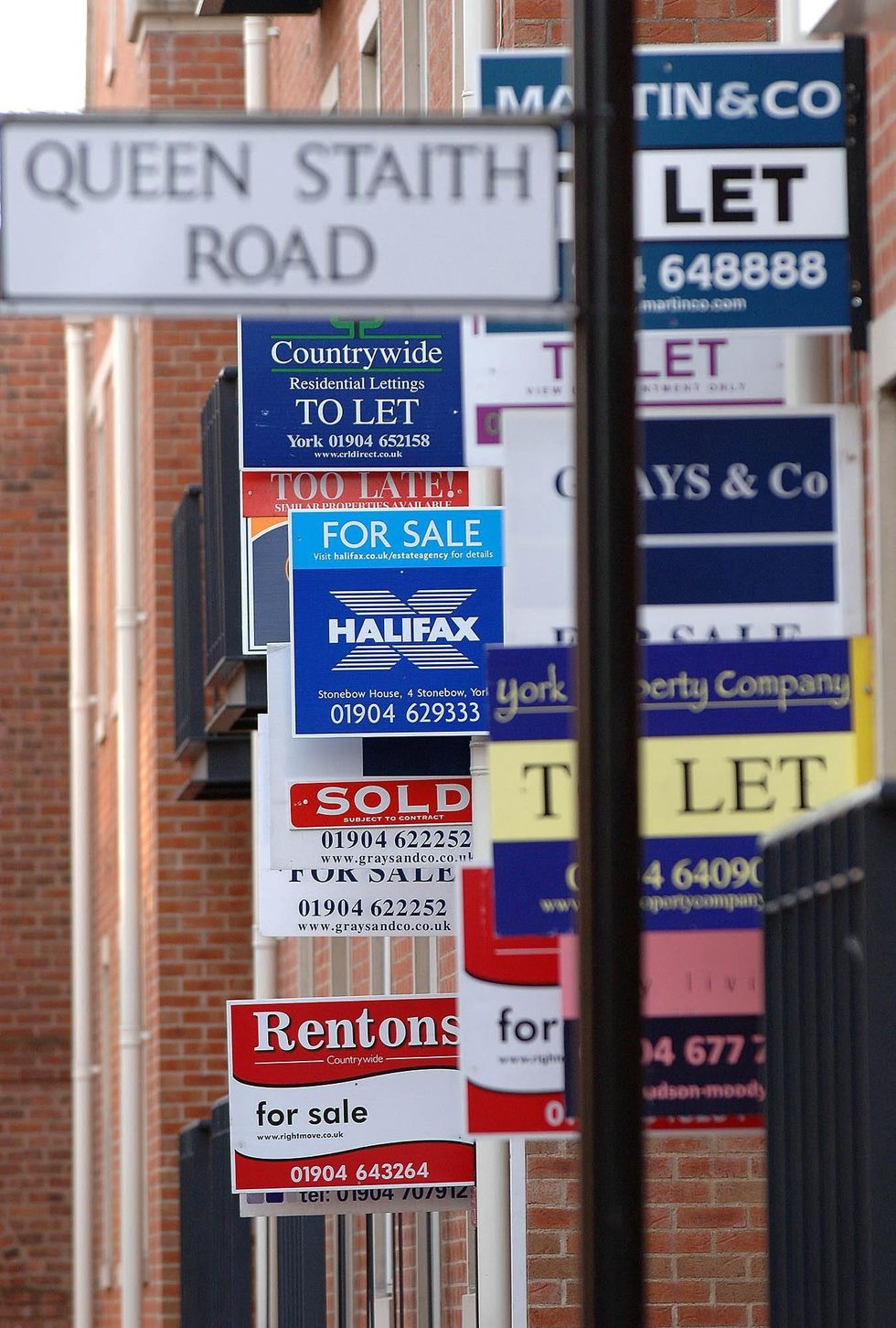The latest Nationwide House Price Index shows prices jumped by 1.2 per cent month-on-month, marking the largest monthly increase since March 2022.
The robust growth represents a significant acceleration from October’s annual rate of 2.4 per cent. This comes as it was confirmed the zero-rate stamp duty thresholds for main residences will drop from £250,000 to £125,000, and thresholds for first-time buyers will slump from £425,000 to £300,000.
The average UK home now costs £268,144, according to the data. This remarkable performance comes despite ongoing affordability challenges and interest rates remaining well above pre-Covid levels.
The surge has pushed house prices near their peak, now sitting just one per cent below the all-time high recorded in summer 2022.
Many Britons may be preparing to move before new stamp duty rules are introduced
GETTY
House prices are likely to soar more, an expert suggested, as Britons prepare to move before stamp duty changes come into effect in April 2025.
Director of Benham and Reeves Marc von Grundherr said: “Nothing supercharges the property market quite like a stamp duty deadline and with the government confirming that the countdown is now on, buyers have flooded the market in the hope of completing a purchase before April next year.
“This uplift in buyer demand will ultimately push house prices up over the coming months, so if you are contemplating selling up, now is a very good time to do so.”
The new findings show the housing market has maintained its resilience, with mortgage approval numbers approaching pre-pandemic levels.
This steady recovery has persisted despite the challenging economic environment, with the monthly house price index rising to 536.6 in November from 530.4 in October.
The surprising strength of the market has caught experts off guard, given the current economic climate. Nationwide’s Chief Economist Robert Gardner said: “The acceleration in house price growth is surprising since affordability remains stretched by historical standards, with house prices still high relative to average incomes and interest rates well above pre-Covid levels.”
Several key factors have underpinned the market’s strength throughout the year.
Solid labour market conditions and low unemployment levels have provided a stable foundation for house prices.

House prices could continue to rise
PA
Strong income gains, even after accounting for inflation, have helped maintain buyer confidence. Household balance sheets are particularly healthy, with debt levels at their lowest relative to household income since the mid-2000s.
Looking ahead, the market is expected to strengthen gradually, provided the economy continues its steady recovery.
Nationwide predicts affordability constraints will ease through a combination of modestly lower interest rates and earnings outpacing house price growth.
However, upcoming stamp duty changes may create short-term volatility in transaction levels during early 2025.

